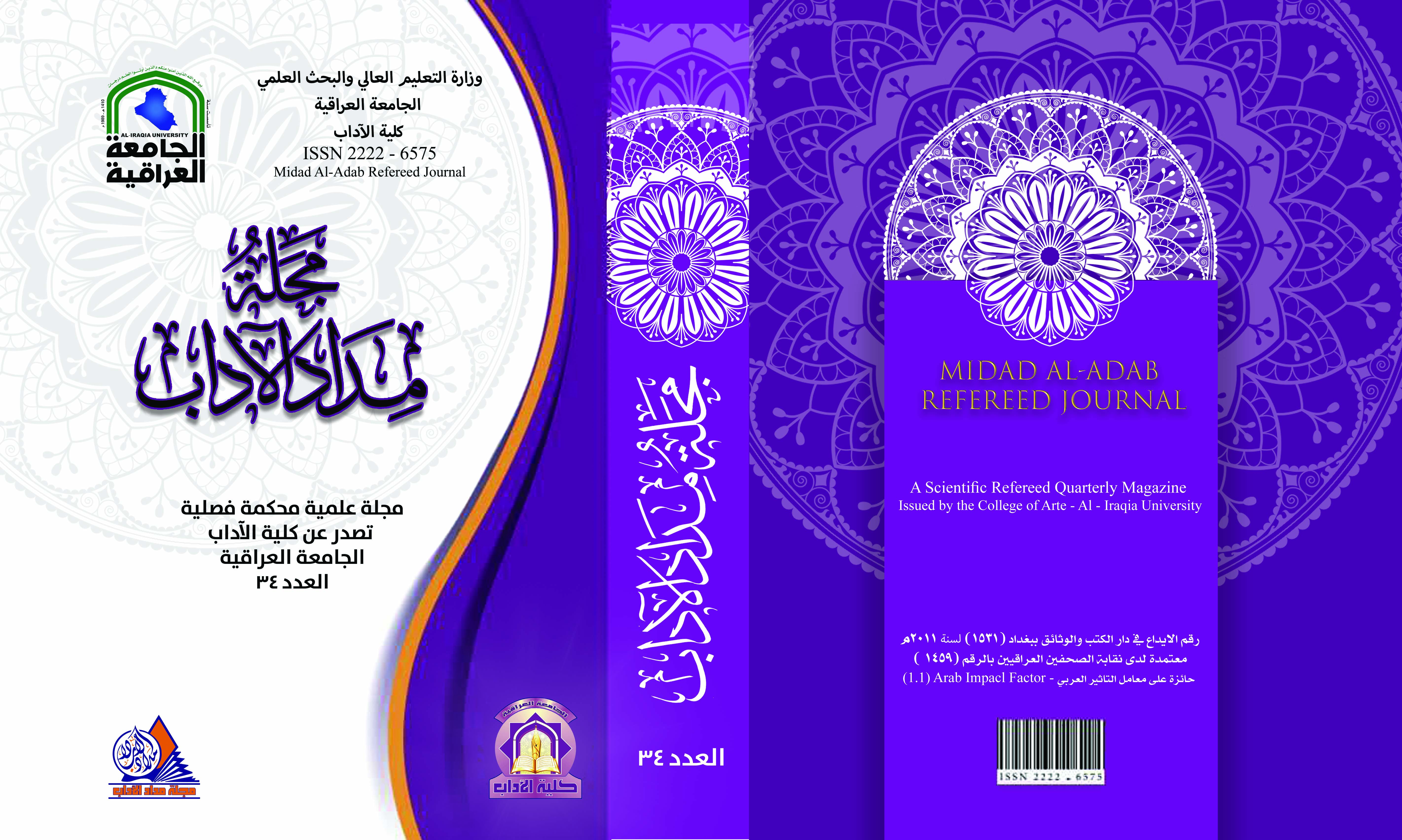Corona space in three Arab novels
Corona space in three Arab novels
DOI:
https://doi.org/10.58564/ma.v14i34.1228Keywords:
Keywords: Corona, space, Rania Al-Khalili, Fakriya Ahmed, Zohour Karam.Abstract
The Corona epidmic (Covid-19)has been an influential phenomenon in the human community in general. Literature, especially the novel, draws from society and interacts with its issues and problems, especially in humanitarian crises, as happened in the spread of the Corona epidemic, which has affected the lives of individuals and claimed many lives and victims, and has even affected life in all its forms- human, health, economic and political. The research study ( Corona space in three Arab novels) came to determine the extent of human suffering from this epidemic,which took control of space and imposed its authority on places until it turned the human body into a dwelling in which people live, reproduce, and struggle for life. Corona space was achieved through three types: Space The body, geographical space, and social communication space. Based on a study of the novels (Corona in the Prostitution Market) by Fakriya Ahmed,( The Last Sunset) by Rania Al-Khalili, and( I Can’t Breathe) by Zohour Karam. The space of the body and the explicit geographical space appeared in the first and second novels, unlike the novel (I Can’t Breathe), in which the space of social communication dominated and spatial designation was absent, corresponding to the atmosphere of the open and common virtual space. The psychological aspect (familiarity- dislike) towards virtual places in the social medie space is achieved according to the compatibility of the characters with the surroundings and those present who belong to the space of these social virtual pages. The social media space is often described with the specifics of real places to facilitate its perception and representation in the awareness of the character and the reader.
Downloads
Published
Issue
Section
License

This work is licensed under a Creative Commons Attribution-NonCommercial-NoDerivatives 4.0 International License.








